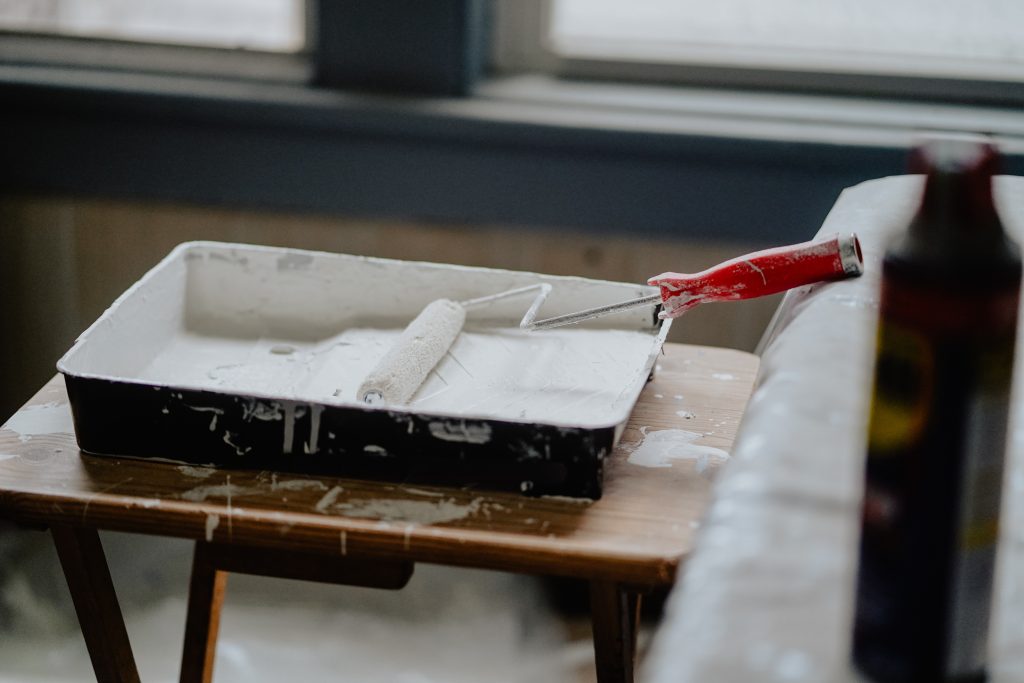Despite being simple, interior house painting requires some skill. The majority of us have experience painting on flat surfaces, from instances like finger painting in kindergarten. However, exterior painting or painting the interior of your home is not as simple.
A true professional in an interior paint job follows a much more structured approach during the task. That’s why their final painted properties look so great.

Tips for Painting Your Home
Applying these right techniques to your upcoming interior painting project is best, but what are they? To speed up the process, we have some tips for you. You can use these suggestions and produce a neater, more appealing final paint job.
Keep your paint from drying out
The paint in a half-empty container will dry out if you don’t care for it. Fill the space in the paint can with golf balls. You can also store the painting upside down with plastic wrap tightly sealed under the cover.
Select the proper primer
Use a water-based primer when painting fresh plasterboard to cover flaws. It also helps create a uniform surface before adding color. An oil-based primer is best for paneling, water- or smoke-damaged walls, and other surfaces.
Keep lap marks out
Maintain a wet edge by painting the entire height of the wall before the other parts. You can go over just a little bit to overlap the last stroke with the next but don’t go overboard with it. This way, the paint roll over the existing layers, creating the final paint.
Stir the paint using a modified stirrer
The painters should drill holes in the paint to mix the paint properly. With the help of the stirrer’s perforations add better paint flow for easier painting. It’s possible to maximize the spread of the paint and ease the painting process.
If desired, add texture
Select a roller with a longer end, as it holds more paint. If you want your wall to have more texture, this trick can scale your painting skills.
Longer naps result in more walls stippling because the roller fabric’s fibers spread more paint. Use a roller with a shorter nap, ideally between 14” and 12”, for the smoothest finish. However, you should pick the most suitable size for your walk type.
Keep your brushes and rollers clean
There’s no need to clean your rollers or brushes if you’re painting with latex. You will need the brushes again if you don’t complete the job in a day. Just place your rollers or brushes in the refrigerator wrapped in plastic bags or tin foil because cold temperatures prevent latex paint from drying quickly. (Be sure to give them time to properly return to room temperature before using.)
Bottom Line
Exterior painting in a DIY project can be a fun experience. It’s still necessary to keep the major painting tips in mind. You can ease the process by giving these tips a shot. It’s a smart way to streamline the process and maximize the effectiveness of your DIY project. For more information, visit eagleexteriorsri.com.

